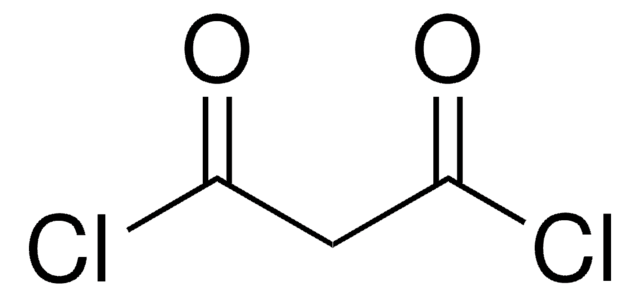All Photos(1)
About This Item
Linear Formula:
(CH3)2C(COOH)2
CAS Number:
Molecular Weight:
132.11
Beilstein:
774375
EC Number:
MDL number:
UNSPSC Code:
12352100
PubChem Substance ID:
NACRES:
NA.22
Recommended Products
Quality Level
Assay
98%
form
crystals
mp
191-193 °C (lit.)
SMILES string
CC(C)(C(O)=O)C(O)=O
InChI
1S/C5H8O4/c1-5(2,3(6)7)4(8)9/h1-2H3,(H,6,7)(H,8,9)
InChI key
OREAFAJWWJHCOT-UHFFFAOYSA-N
Looking for similar products? Visit Product Comparison Guide
Related Categories
Storage Class Code
11 - Combustible Solids
WGK
WGK 3
Flash Point(F)
Not applicable
Flash Point(C)
Not applicable
Personal Protective Equipment
dust mask type N95 (US), Eyeshields, Gloves
Choose from one of the most recent versions:
Already Own This Product?
Find documentation for the products that you have recently purchased in the Document Library.
Customers Also Viewed
Elisabet Pires et al.
Physical chemistry chemical physics : PCCP, 22(42), 24351-24358 (2020-10-22)
The variation of the 31P chemical shift of triethylphosphine oxide in CDCl3 solution with a series of Brønsted acids at different molar ratios allows the determination of the value for the 1 : 1 species (δ1 : 1), which is much lower than the
P A Frey et al.
Science (New York, N.Y.), 264(5167), 1927-1930 (1994-06-24)
Spectroscopic properties of chymotrypsin and model compounds indicate that a low-barrier hydrogen bond participates in the mechanism of serine protease action. A low-barrier hydrogen bond between N delta 1 of His57 and the beta-carboxyl group of Asp102 in chymotrypsin can
O Kniemeyer et al.
Applied and environmental microbiology, 65(8), 3319-3324 (1999-07-31)
The microbial capacity to degrade simple organic compounds with quaternary carbon atoms was demonstrated by enrichment and isolation of five denitrifying strains on dimethylmalonate as the sole electron donor and carbon source. Quantitative growth experiments showed a complete mineralization of
M Phillips et al.
Clinical chemistry, 38(1), 60-65 (1992-01-01)
We describe a method for the collection and microanalysis of the volatile organic compounds in human breath. A transportable apparatus supplies subjects with purified air and samples their alveolar breath; the volatile organic compounds are captured in an adsorptive trap
J Schneede et al.
Analytical chemistry, 67(5), 812-819 (1995-03-01)
Methylmalonic acid (MMA) in serum is an established marker of cobalamin deficiency. MMA and other short-chain dicarboxylic acids react with 1-pyrenyldiazomethane to form stable, highly fluorescent 1-pyrenylmethyl monoesters. We have analyzed these esters in human blood by capillary electrophoresis (CE)
Our team of scientists has experience in all areas of research including Life Science, Material Science, Chemical Synthesis, Chromatography, Analytical and many others.
Contact Technical Service






![Tris[2-(dimethylamino)ethyl]amine 97%](/deepweb/assets/sigmaaldrich/product/structures/695/792/ee0ff167-22a3-43a7-83a1-6c4908adf0ae/640/ee0ff167-22a3-43a7-83a1-6c4908adf0ae.png)






